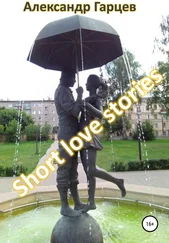The lost umbrella, a small thing in itself, was a turning point. Until her strange behavior about it, I hadn’t admitted to myself that Mariel was in hiding, perhaps simply hiding how disconnected she was. Isn’t that, after all, the secret we most keep both from the world and from ourselves—not what we know, but the extent of our ignorance? True or not, the thought consoled me. The incident with the umbrella confirmed what she had already intimated: the kind of men Mariel was attracted to were the kind who didn’t ask questions. That had narrowed the field to someone like me.
She didn’t begrudge me a past. I’d told her my well-rehearsed repertoire of stories about growing up as an alienated army brat, the pacifist son of an alcoholic drill-sergeant father whose reassignments from military base to military base—not to mention all the schools from which I’d been expelled along the way—ensured I was from nowhere. She’d listen politely, but did not reciprocate. After a while I stopped recounting my past, as if I didn’t have one either. But rather than accept ours as a relationship in the present tense, I secretly began to imagine for her a past preferable to my own, with the beach umbrella at its epicenter.
3
With no more origin than a wildflower, the umbrella sprouted, gaily striped, from the pebble beach of a nameless cove where she went to sunbathe nude. That was the summer when, after graduating from art school, she’d taken her first trip abroad. If not for the umbrella, the cove wouldn’t have been visible from the water. It couldn’t be accessed by land. She had discovered it one morning when, following a pod of dolphins, she pedaled her rented pedalo beyond its usual range. Stretched in the umbrella’s shade was a young man with golden hair and bronze skin, wearing green swim goggles. There was no beached boat, no indication of how he’d arrived, and she had the curious thought he might be the lifeguard there until she noticed his trident spear.
Each successive morning she returned to find him waiting.
Each evening she retired to an affordable pensione that had formerly been a convent for an order of nuns who’d taken the vow of silence. The converted cells were clean and spare: desk, chair, a narrow bed lit by a vigil candle. Above the washstand, where one might expect a mirror, a crucifix hung on the whitewashed wall. There, behind the bolted door, instead of keeping a journal she sketched from memory studies of the shapes that her body had composed that day in concert with the young man’s.
Those figure drawings were the only subject in the leather-bound sketchbook she had bought in Florence. If she colored in the shadow of the umbrella in charcoal, then she drew their bodies in pastels. If the umbrella was sketched so that its stripes swirled like a psychedelic color wheel, then their bodies were inky shadows shaded with graphite. No matter how kinetic the image, the tension between light and shadow suspended it upon the stillness of the deckled page. Still, as the pages turned, the swish of ocean, the foam soaking into pebbles, the scuttle of crabs, the hum of swallows swooping along the cliff walls, the punctuated language of dolphins cruising just offshore, became audible. In school, she had been taught to control the medium. What she learned in the shade of the umbrella and then transcribed in her cell was surrender. Her drawings were not about release, they were release—an immersion into an ungovernable invention that swept her beyond anything she might have conceived in school, let alone anything she might have dared to reveal.
On the night she drew on the last page in the sketchbook, she fell asleep and dreamed that she continued to draw, first on the bedsheet, and then across the white walls. Aroused by the scenes she’d depicted, she opened her eyes to find the drawings from her dreams frescoed across her room. That morning, before leaving for the cove, she took the crucifix down from the wall now illuminated as if to make the cell a temple to Venus, and hid it beneath her mattress. She packed her suitcase and set it beside the door. She sealed the sketchbook in waterproof wrappings with candle wax and brought it to give to the young man.
But as she pedaled up and over swells, the marker of the umbrella was nowhere to be seen and the location of the secret cove had disappeared with it. Crystalline reflections of water marbled the outcroppings of cliffs, fish leaped around her, and when she gazed along the light shafting into the clear indigo, it appeared as if the pedalo were suspended on a glittering shoal of sardines. Dolphins shot through the fish in a frenzy of feeding, and then she saw the flash of the young man’s body. The tint of water gave his golden hair and skin a verdigris cast. Staring up at her, trident in hand, he ascended with a surge of such streamlined force that for a moment she wondered if he’d forgotten she was bound to air and might be rising to carry her under. His lips brushed the underside of her reflection, and he arched down without breaking the surface, which was now mirror-slick with the oil of the sardines. She realized then that during those timeless earlier days the pod had circled, waiting, calling the dolphin-rider back. Pursued by plunging gulls and cavorting dolphins, the school of fish moved out to sea. She didn’t follow.
The folded umbrella bobbed amid the flotsam along the salt-bleached, guano-stained dolomite cliffs. She lifted it dripping from the water, and in return released her sketchbook to the sea. “Someone will find you,” she whispered as it floated into that blue expanse of water between the parentheses of horizon and cliffs. She knew that when she returned to the pensione, her suitcase would be waiting outside the gate and the gate would be locked.
4
After her parents were numbered among the victims of a rogue wave that took the cruise ship Guarda La Luna to the bottom of the Bermuda Triangle, she was placed in the care of her only living relative, an aunt whom she’d never met—had never so much as heard of—her mother’s identical twin.
At least, that was the account she was given of how she came to awaken in this drafty, listing house that creaked in time to the creaking of the frozen cove. Supposedly, upon hearing that her parents were lost at sea, she fainted and fell, striking her temple on the runner of a rocking chair. When she regained consciousness, she had amnesia. The doctors had assured her aunt that in such cases memory usually returns, though they couldn’t say when.
The Girl tried to visualize a room with a rocking chair, perhaps because she could summon up its creaking with each gust off the cove—or had loss struck so suddenly that she became acutely aware of the teetering of a once-stable world? But the detail of the rocking chair failed to promote any recall of the house where she’d been born and raised.
“Your mother, bless her soul, shawled in a vermilion afghan, nursed you on that rocker. Even after you were weaned, my dear, whenever you were upset or afraid, your mother would swaddle you in that afghan and rock you to sleep,” her aunt told her. “If she could, she’d rock you now.”
The Girl stared out the bay windows at the cove, unsure as to whether her amnesia might be gradually lifting, or if she were merely growing familiar with the absence of all she’d forgotten. She could hear an ocean hidden beneath the ice, one that maintained its intimate connection with the moon. Its tides still rose and fell, its waves washed in and out. The rhythms entranced her. Within the trance, the past signaled at her peripheral vision, too elusive to be seen directly. Remembering was like trying to call back a dream whose fragmented imagery and troubling emotion had bled into her waking hours. Its protean transformations defied the logic of language and the linearity of a story.
Читать дальше












